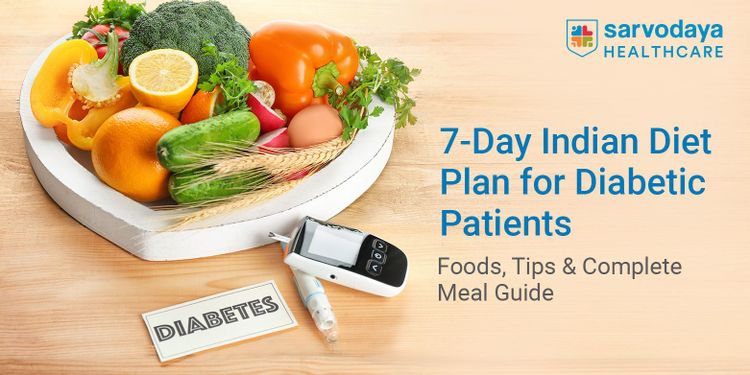Living with diabetes can be mentally and physically draining, especially when blood sugar levels fluctuate or diet choices feel overwhelming. For many individuals, one of the most effective ways to stabilise glucose levels and prevent long-term complications is to follow a structured eating plan.
In this blog, we explore how thoughtful nutrition can support healthy blood sugar levels, reduce spikes and improve overall well-being.
Understanding Diabetes and the Role of Diet
Diabetes is a chronic condition where the body either does not produce enough insulin or cannot use the insulin it produces effectively. As a result, sugar builds up in the bloodstream instead of being used for energy. While medications play an important role, diet is equally crucial because food directly influences blood glucose levels throughout the day.
A well-designed diet plan for diabetic patients in India focuses on stabilising sugar levels by controlling carbohydrate intake and prioritising nutrient-rich foods.
Foods Suitable for Diabetic Patients
A balanced plate helps reduce glucose spikes while providing steady energy throughout the day.
Here are the key food categories that support a healthy and stable diet:
- Whole Grains: Options such as brown rice, whole wheat, millets, and oats digest slowly and help maintain consistent glucose levels.
- Lean Proteins: Lentils, beans, paneer, tofu, eggs and skinless poultry improve satiety and reduce the risk of overeating.
- Healthy Fats: Nuts, seeds, olive oil and small quantities of ghee contribute to heart health while ensuring balanced nutrition.
- Low Glycaemic Fruits: For many diabetic patients, fruits such as pears, guava, berries and apples can be safely consumed in small portions due to their low glycaemic index.
- Vegetables: Non-starchy vegetables like spinach, broccoli, carrots, beans, and bottle gourd should be added generously to meals.
- Hydrating Foods: Coconut water (unsweetened), herbal teas and infused water support metabolism and overall well-being.
Creating the Perfect Indian Diet Plan for Diabetic Patients
A well-structured, seven-day diet plan for diabetic patients must combine nutrition, taste, and cultural relevance.
Below are the key considerations that help build a safe and effective plan:
- Low Glycaemic Index Choices: Rotis made from millets, multigrain atta or whole wheat are preferable to refined flour options.
- Balanced Macronutrients: Each meal should include complex carbohydrates, lean protein and healthy fats to reduce sugar fluctuations.
- Adequate Fibre: Vegetables, pulses and fruits improve digestion and slow glucose absorption.
- Herbs and Spices: Ingredients such as fenugreek, cinnamon, turmeric and garlic can support metabolic health.
- Hydration and Meal Timing: Consistency in meal timings prevents sudden sugar drops or peaks and is an important part of the diet plan for diabetic patients in India.
- Mindful Portions: Even healthy foods can affect sugar control when consumed in excess, so portion awareness plays a key role.
Individuals who need personalised support, particularly those with additional medical conditions or uncontrolled blood sugar, may benefit from consulting a diet specialist in Faridabad.
7-Day Diet Plan for Diabetic Patients (Indian Meal Guide)
The following 7-day diet plan for diabetic patients is designed with Indian eating habits in mind and focuses on low-glycaemic, high-fibre and balanced meal combinations:
Read More - Diabetic Retinopathy - Most Common Eye Problem In Diabetes
Day 1
- Morning Drink: Warm water with soaked fenugreek seeds
- Breakfast: Vegetable oats upma
- Mid Morning: Apple or guava
- Lunch: Multigrain roti, moong dal and sautéed spinach
- Evening Snack: Handful of roasted chana
- Dinner: Vegetable dalia with mixed vegetables
Day 2
- Morning Drink: Cinnamon water
- Breakfast: Besan chilla with mint chutney
- Mid Morning: A small bowl of papaya
- Lunch: Brown rice, rajma and cucumber salad
- Evening Snack: Buttermilk (unsweetened)
- Dinner: Grilled paneer and stir-fried beans
Day 3
- Morning Drink: Warm lemon water
- Breakfast: Poha with vegetables
- Mid Morning: A handful of nuts
- Lunch: Whole wheat roti, chole and steamed lauki
- Evening Snack: Green tea
- Dinner: Quinoa khichdi
Day 4
- Morning Drink: Tulsi and ginger water
- Breakfast: Idli with sambar
- Mid Morning: Pear
- Lunch: Millet roti, tur dal and cabbage sabzi
- Evening Snack: Roasted lotus seeds
- Dinner: Vegetable soup with paneer cubes
Day 5
- Morning Drink: Plain warm water
- Breakfast: Vegetable upma
- Mid Morning: Berries (if available)
- Lunch: Brown rice, masoor dal and okra
- Evening Snack: Fresh coconut slices
- Dinner: Moong dal cheela with vegetables
Day 6
- Morning Drink: Jeera water
- Breakfast: Scrambled eggs or tofu
- Mid Morning: Small bowl of watermelon
- Lunch: Multigrain roti, mixed dal and beans poriyal
- Evening Snack: Unsalted peanuts
- Dinner: Vegetable stew
Day 7
- Morning Drink: Warm water with lemon
- Breakfast: Ragi dosa with chutney
- Mid Morning: Apple
- Lunch: Khichdi made with dal and vegetables
- Evening Snack: Herbal tea
- Dinner: Grilled vegetables with paneer
Additional Tips for Managing Blood Sugar Effectively
Here are essential factors that can help you maintain balanced sugar levels:
- Regular Exercise: A minimum of 30 minutes of daily walking or moderate physical activity improves insulin sensitivity.
- Portion Awareness: Even foods included in the diet plan for diabetic patients in India can cause spikes when eaten in excess.
- Stress Management: Techniques such as deep breathing, yoga, or meditation help prevent stress-related glucose fluctuations.
- Adequate Sleep: Poor sleep patterns influence metabolism, appetite and sugar regulation.
- Hydration: Drinking enough water improves digestion and supports metabolic health.
- Consistent Meal Timings: Eating at predictable times prevents sudden rises or drops in blood sugar.
- Limiting Refined Foods: Avoiding sweets, packaged snacks, and bakery items helps maintain stability.
Patients who experience unpredictable sugar variations or struggle with meal planning may benefit from visiting a dietetics and nutrition hospital in Faridabad for personalised guidance.
Read More - Heal Your Gut Naturally: Best High-Fibre Foods and Diet Tips for Constipation
Conclusion
A well-planned eating routine plays a central role in controlling diabetes and supporting overall health.
Sarvodaya Hospital, Faridabad, offers comprehensive support for individuals managing diabetes through its expert dietetics and nutrition services. At the dietetics and nutrition hospital in Faridabad, patients receive personalised assessments, detailed meal planning and preventive counselling from experienced specialists.
To begin your journey towards healthier, more balanced living, get in touch with the experts and book an appointment now.

























